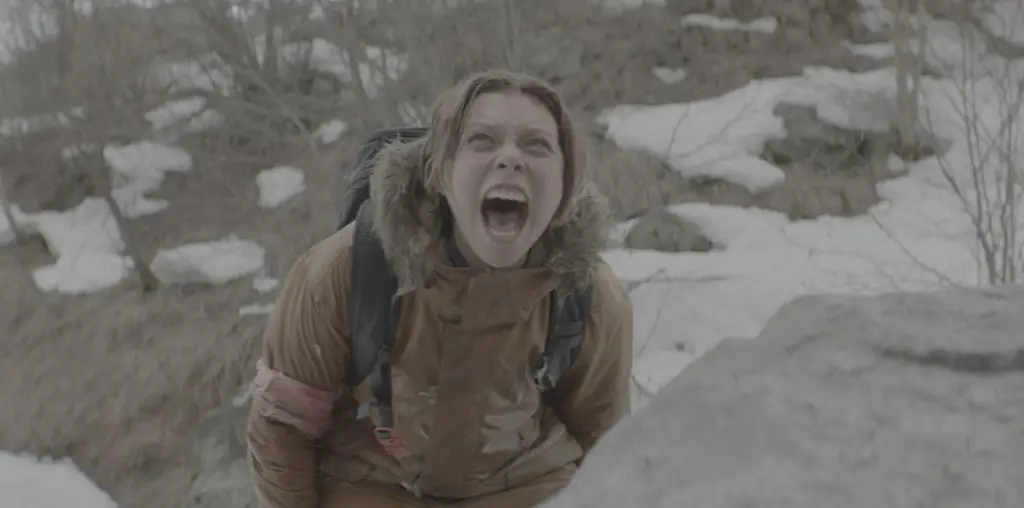
Billy Bob Thornton takes yet another turn in his backwoods background, this time appearing as a tormented southerner who destroyed his family and comes back to his roots 20 years later. Dark and quiet is the tone from start to finish. This is to be expected with the story of a man who fled the police and sent his car off the ravine and lost his child and permanently disabled his wife. Tough to put a happy face on that scenario.
After a beautifully shot crash scene, (I do realize how bad that sounds) we begin a very deliberate journey of Joe (Thornton) as he comes home after a long stretch in stir and looks to find some form of redemption. His intentions may be difficult to divine given that Thornton’s performance is, as they say, reserved. Joe is taciturn to a fault, at times appearing sedate, and others sedated. Joe returns to his home, silently walks in, and later when his wife Chrystal, (Lisa Blount) comes in she simply asks if he would like something to eat. Next we get to follow as Joe reconnects with his surroundings and his past.
He tells Chrystal that his time spent in the grey –bar inn transformed him into a man incapable of making decisions for himself any longer and asks what he should do. Chrystal is a woman wracked with the pain of fused vertebrae in her neck and back and she has no real tangible connection with normality. Joe sleeps on the porch as he tries to reinsert himself with the community while looking for a way of redemption.
He is reacquainted with his cousin who instantly inquires whether Joe will return to his pastime of growing marijuana while they embark on drunk driving excursions. (Apparently racking up DUI charges is a cottage industry in this Dixie burg.) This is a dicey decision since the local hood, a scarecrow looking slob named Snake (played believably by writer/director Ray McKinnon) is also a direct nemesis of Joe’s, and he demands inclusion with any pot production from Joe. His threats of violence are believable and he and Joe do some catching up in the form of a parking lot fight that is notably vicious.
There is also a rather disconnected sub plot concerning two University of Chicago staff members—one who is blind—as they travel into town in search material for a book about American folk music. We cut away to their quest repeatedly but in the end they truly have no connection to Joe’s story and his search for answers, so much so that I don’t think Joe was ever aware that they were in town.
In the balance the film itself is an interesting study in a man’s quest to rectify, or at least address, the problems he caused in his past. But the story is distancing in that it takes very long to unfold and Thornton takes the role of introspection a little too far. Repressed emotions are one thing, but character paralysis is also what takes place on occasion and the story ends up coasting to a stop before it laboriously begins to wind back up to a pace that was already methodical. By the time it winds up we are left with a two-hour film that contains a story that could have been smoothly detailed in thirty minutes.
